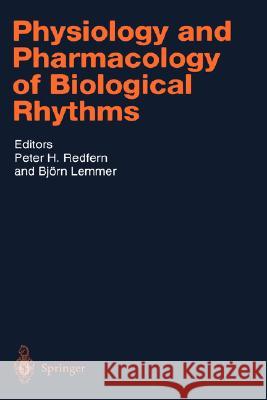Physiology and Pharmacology of Biological Rhythms » książka
Physiology and Pharmacology of Biological Rhythms
ISBN-13: 9783540615255 / Angielski / Twarda / 1997 / 668 str.
Measured by any criteria, research in chronobiology in general and chronopharmacology in particular has expanded rapidly in recent years. This expansion has been paralleled by an increasing recognition by those outside the field of the relevance and significance of recent developments in chronobiology. Advances in two areas have been chiefly responsible. First, application of the full range of modern techniques in behavioral, neurochemical, and molecular biology have greatly improved our understanding of basic clock mechanisms. In several species the genetic basis of the circadian clock is being progressively delineated. A complete picture of the neurochemical and neuroanatomical structure of the mammalian clock is emerging and the complex pattern of control mechanisms involving endogenous clock mechan- isms and photic and nonphotic zeitgebers is being built up as a result of behavioral studies. Secondly, in parallel with these exciting developments in basic science, clinical applications are being convincingly demonstrated in the general fields of pharmacology and medicine as well as in specific areas, e.g., jet lag, shiftwork maladaption syndrome, blindness, and cardiovascular system. It is therefore an opportune time to review progress in the field of chronopharmacology and to introduce some of the exciting developments and prospects to a readership beyond the confines of the chronobiological cognoscenti. This volume is therefore aimed primarily at the pharmacologist - whether basic, applied, or clinical-who is not a specialist in chronobiology.











